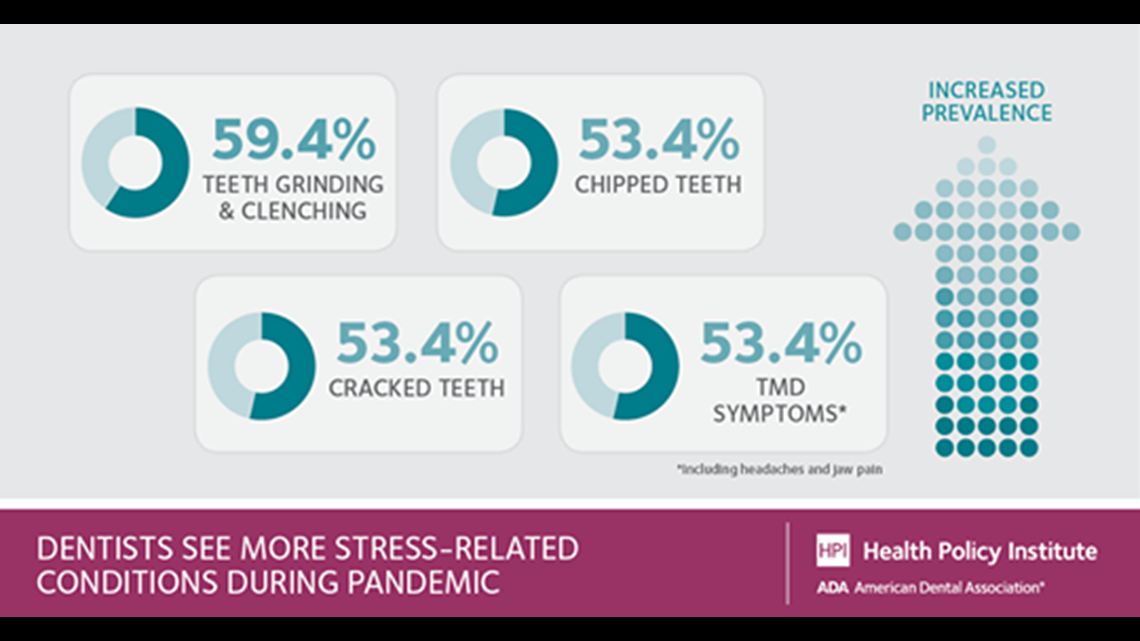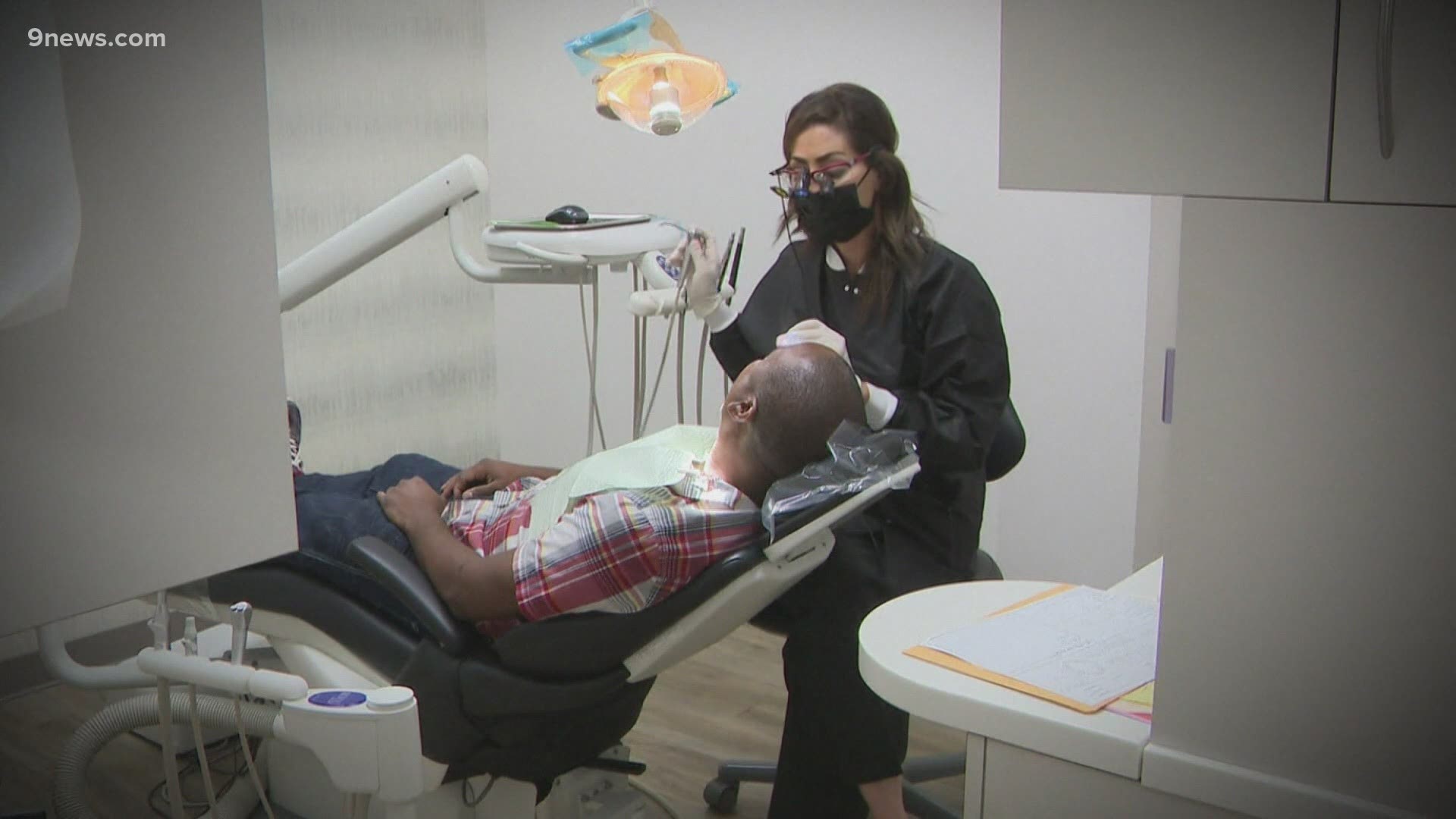COLORADO, USA — The American Dental Association recently released a survey that shows an increase in the number of cracked teeth that dentists and endodontists are repairing.
The rise in the injuries appears to be directly tied to the stress and anxiety resulting from the COVID-19 pandemic. The increases in dental-related difficulties are illustrated in the survey results on the association's website.
More than half of the polled dentists reported increases in the prevalence of bruxism (59.4%), chipped and cracked teeth (53.4%) and temporomandibular disorder symptoms (53.4%) among their patients, according to the results on the website, and more than a quarter saw a rise in other conditions, including 26.4% who reported an increase in caries and 29.7% who reported an increase in periodontal disease.


Dr. William Pfeifer, a Centennial dentist who specializes in restorative dentistry, said the condition that leads to these injuries is called "hyperfunction," or people experiencing extreme stress and anxiety that leads to "grinding."
"There's definitely more grinding," Pfeifer said. "I'm seeing...cracked teeth, and the flip side of that is muscle pain — jaw pain, headaches in the temples, back of the head, back of the neck. Those things are just the flip side. If you're not wearing your teeth down, you're taxing the muscles."
Pfeifer said a lack of good restorative "REM sleep" is a big part of the problem.
"That can make a difference," he said. "When we go to sleep, do we get through that excited phase initially and get into a deep REM sleep, or do we start grinding and doing what I call 'porpoising' or waking up, then going back to sleep, and then waking up again?" Pfeifer said.
Many patients, Pfeifer said, are having a problem dropping off at bedtime, and this only increases their stress and anxiety.
Below is a great sleep technique recommended by both dentists and doctors, including 9Health Expert Dr. Payal Kohli.
The goal of this exercise is to stimulate the Vagus Nerve and the body's Parasympathetic Nervous system. That will trigger the "rest and digest" process, and put you to sleep almost instantly.
Press your tongue to the roof of your mouth, create a little suction, and then take deep breaths through your nose.
Kohli said it is important to breathe deeply because, "It's the abdominal breathing that stimulates the vagus."
After some practice, if you are lucky, you will find yourself in a deep sleep after five or 10 breaths.
RELATED: Economic recovery amid the COVID-19 pandemic may come from an unlikely place — dentist offices
SUGGESTED VIDEOS: Senior Source

